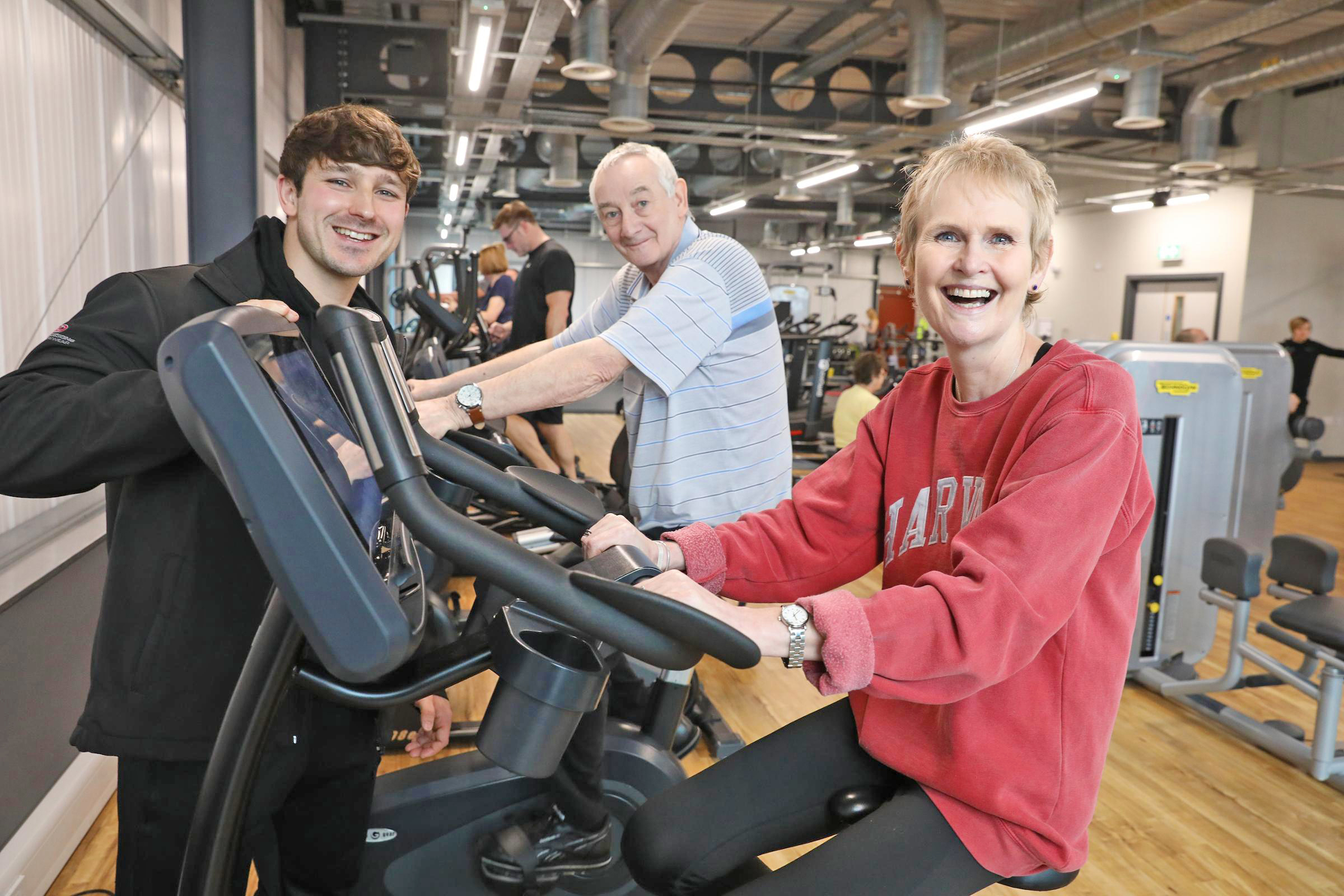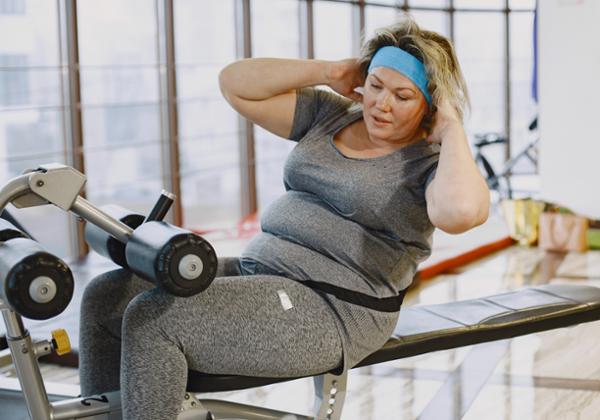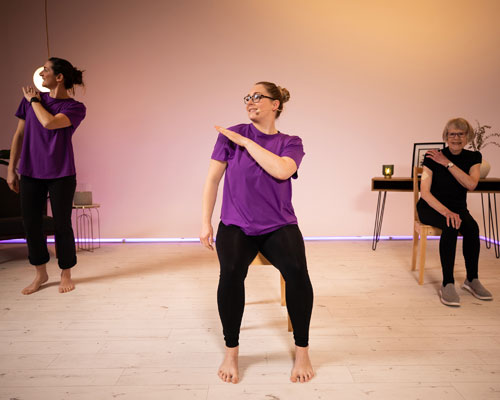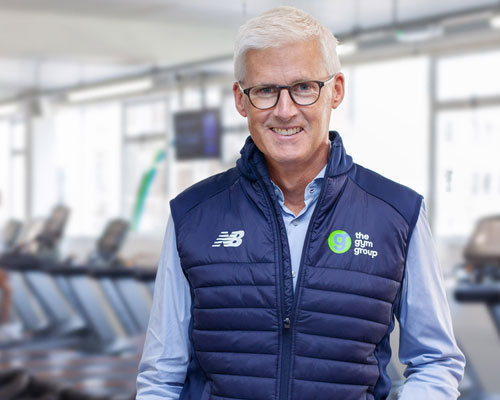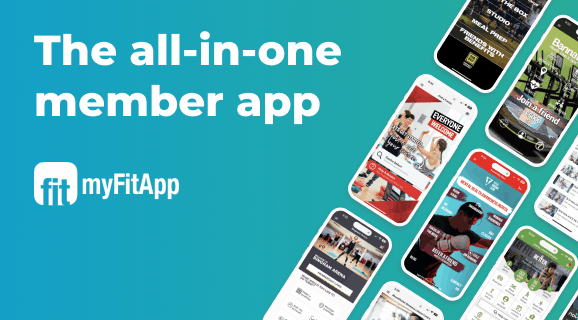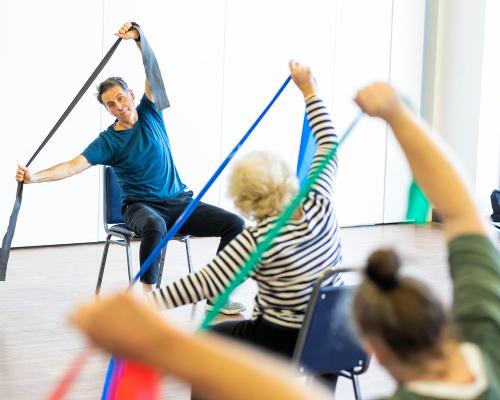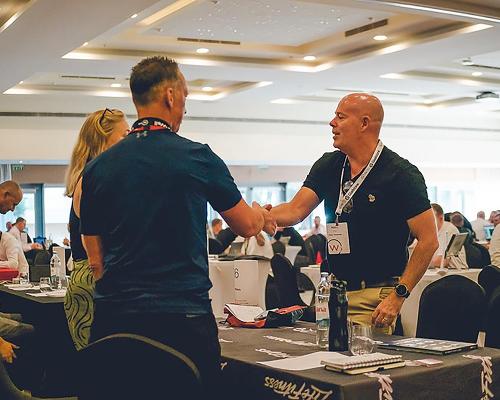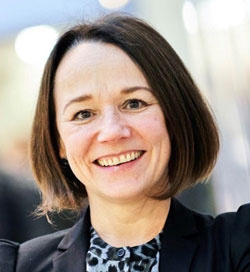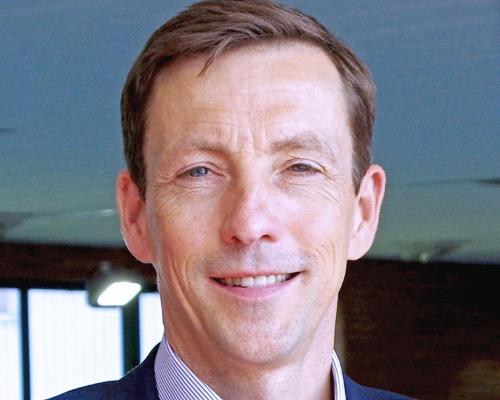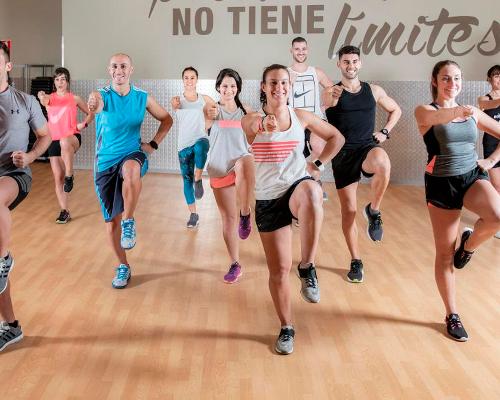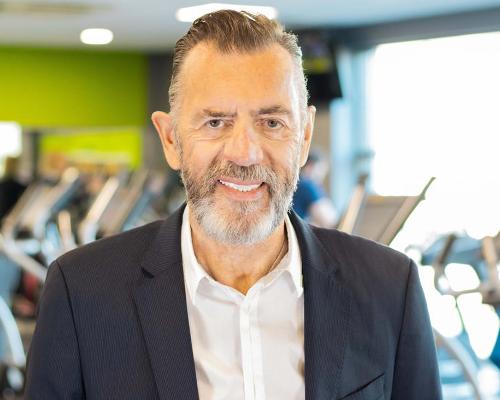features
Golden opportunity
Following the COVID shakedown, the UK health and fitness sector is presented with the biggest opportunity in its history to impact the health of the nation and drive up penetration rates. Is this the time to link up with the NHS? Kath Hudson reports…
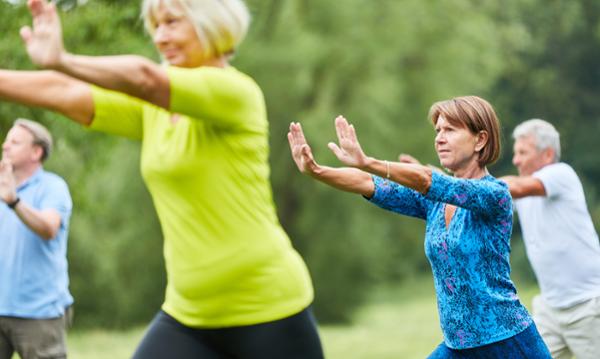
The pandemic brought about some stark realisations. The NHS would have ceased functioning without the lockdowns and anyone who has tried accessing services since will be aware of quite how under resourced it is now. COVID also exacerbated the serious health inequalities which already existed in the UK. According to Sir Michael Marmot’s review at the end of 2020, health inequality across the UK has worsened during the last 10 years.
However, COVID has given many people a sharp wake up call that they need to start taking more responsibility for their health and wellbeing. The creation of the Office for Health Promotion and the £100m obesity fund suggests there could be some political will to get behind the public mood.
Advisor to Public Health England, Muir Gray, says the health and fitness sector represents a huge untapped resource of a 50,000-strong workforce which is technically competent and highly skilled, with condition-specific qualifications, who could really help to ease the burden on the NHS.
Gray argues the country needs a National Activity Therapy Service, delivered locally by the sector’s excellent professionals: “We need to establish a routine of prescribing and dispensing activity in primary care and get activity therapy funded – just like drug or psychological therapy. The NHS desperately needs help to deal with the effects of long-term conditions, especially the approximately 12 million people who don’t reach the specialist NHS rehabilitation services.”
The CEO of UK Active, Huw Edwards, echoes this: “As our health service comes under even greater pressures and the backlog for treatment grows, it’s essential we look differently at how healthcare-related physical activity could be delivered in gyms and leisure centres within our communities.”
The time is now
In many ways, the health and fitness sector has been building to this point for several years and is well placed to take this reality forward. Through the monitoring evaluation of the Leisure Recovery Fund, the sector will have consistent data for the first time.
The Benefits Outweigh the Risk report, a follow-up to the 2015 research study, Exercise, the Miracle Cure, builds on the body of evidence which shows exercise is an effective intervention to many diseases and the risk of participation is very low. This removes a hefty barrier, as 46 per cent of healthcare professionals had previously reported not knowing how to advise patients on how to safely take part in physical activity.
Tara Dillon, chief executive of CIMSPA, says much of the necessary work to remove the prescribing barriers has already been done and the industry is now match fit: “In 2016, CIMSPA facilitated a meeting of all the Royal Colleges and said to them we have a highly trained workforce, where would you like us to intervene? They acknowledged the power of our sector and the evidence base, but overwhelmingly said they didn’t understand our workforce. They wanted us to be more like them in order to give them confidence to refer.
“We have since given them this, by creating chartered practitioner status for those exercise professionals who have bolted on specialisms to their qualifications – such as stroke rehabilitation, cancer prehab and rehab. We also had to educate the healthcare professionals that this has happened, as physical activity as a preventative measure isn’t taught at med school. In response, Sport England has funded the Moving Healthcare Professionals Programme, to educate healthcare professionals in the benefits of exercise.”
Where are the opportunities?
There is a lot of hype around the subject, but are there actually opportunities to tie up with the NHS and access funding? Gray believes so, citing The Additional Roles Reimbursement Service and the Elective Recovery Fund as new funding pathways which the industry might be able to tap into.
Other sources of funding are also available: the Somerset Activity and Sports Partnership is running a programme financed by a community renewal fund, which encourages those who are out of work and with certain health issues, to use physical activity to improve their health, self esteem and therefore employment potential.
“The individuals we will be targeting for this programme may have high BMIs, hypertension, low mood, anxiety, or be new mums,” says Jane Knowles, chief executive of Somerset Activity and Sports Partnerships. “As part of this programme health care assistants from surgeries will accompany patients into the leisure centre to meet the exercise professionals and to help overcome the intimidation barrier.”
GLL is working with the NHS Trusts in Cumbria to co-locate their musculoskeletal physiotherapy services from hospitals into leisure settings. GLL regional and health intervention manager Lynn Almond says: “There are more opportunities than before for operators to work with the NHS, for example, the provision of weight management programmes and support for COVID recovery. It’s anticipated it will take three to five years to clear the waiting lists for medical treatments, so it will be important for the NHS teams to redesign patient pathways to increase their capacity.”
Social prescribing
Working alongside GPs, social prescribing connects people to activities such as fitness groups, swimming, walking, running and dancing and is an area in which UK Active believes the sector could add value. It has called on the government to encourage more social prescribing to ease pressures on the NHS, and make it easier for health care professionals to refer people to fitness facilities.
James Sanderson, CEO of the National Academy of Social Prescribing, says that at least 20 per cent of GP appointments are about wider social needs, rather than medical issues, and so social prescribing could provide the answer.
He believes social prescribing will be a key tool in pandemic recovery: “The programme not only helps us to address health inequalities, but also wider determinants of health, such as stress and loneliness.”
In the coming months and years, Sanderson expects to see more green social prescribing, such as walking schemes, community gardening projects, green gyms, forest bathing and outdoor art activities.
The challenges
“Although there are opportunities on the horizon, the question is how we can seize them,” says Kirsty Cumming, chief executive of Community Leisure UK (CLUK). “Everything currently happens at local level, so it still comes down to a postcode lottery. Ideally we need a national strategy which can be delivered locally. CLUK is working on this, strengthening the links between the health and fitness sector and healthcare and sharing best practice among members.
Dillon says the sector needs actual political will, not just plaudits and promises. “There are some signs this is starting to happen,” she says. “The House of Lords Select Committee for Sport, Physical Activity and Recreation published its findings in December, recommending that physical activity and sport fits under the Department of Health and Social Care, not the Department of Culture, Media and Sport. It also called for a minister to be appointed who has a specific responsibility for health and wellbeing and for a national plan which is legislated to deliver.”
Despite all the efforts which organisations like CIMSPA, UK Active and Sport England have made, there is still reticence towards the health and fitness sector from the medical community.
Knowles says a language barrier currently exists between the healthcare and health and fitness sectors.
“The healthcare circles often don’t understand or don’t recognise the level of qualification which health professionals have and they’re not always fully aware of the benefits of physical activity,” she says. “In its defence, the primary care network is working way beyond its capacity, so there is no time or energy from that side to form new relationships.”
The way forward
NHS workers are overstretched, so it will be up to our sector to build the relationships. As Cumming says: “Our sector will have to be proactive. We must go to the healthcare sector with a very clear case, so it’s easy for them to look at it and say yes, this is an opportunity for us to work together.”
Consultant John Oxley says it is important to show humility when building rapport with new partners: “Don’t barge in with an oven-ready solution, but enquire and explore opportunities to become an established part of a health care system. This opportunity requires us to think more broadly, get a grasp of a new language and expose ourselves to building new relationships in unfamiliar environments.”
Almond says for the sector to raise its profile, networking is key and it takes time, confidence and persistence. “It’s all about relationship building and proving what we, as a sector, are able to do,” she says. “Establish what your local health system has outlined as a priority for the community, then consider how your services could support this. Using available research, build a case for how your offering could support these priorities, particularly outlining the long-term benefits and cost saving.”
Andy King, chief executive of GM Active, which runs Prehab4Cancer, says training is key: “It’s not enough to simply train your staff to various level 3 and 4 qualifications. You need to train your leaders to be part of the system more generally.” GM Active is creating a leadership programme which builds on its Prehab4cancer learnings and system leadership theories.
Culture change
To move closer to the healthcare sector, the health and fitness industry might have to change some of its practices, especially around its messaging.
“Language is key to this campaign,” says Gray. “The word fitness is associated with youth and lycra in the minds of many people, whereas health and wellbeing is a powerful term, which may be politically useful.
“While we are at it, we need to discontinue the term leisure!”
Knowles stresses the point that gymtimidation does still exist, especially among the cohort which the industry will be targeting with these types of programmes: “While leisure centres are certainly an untapped resource for primary care, the image of the industry is still not entirely friendly.
“To those who have never exercised, health clubs seem to be full of skinny, beautiful people.
“This cohort needs a lot of handholding and one to one guidance to unpick the barriers which have led them to where they are in terms of their physical and mental health.
“Campaigns like This Girl Can are helping to change this perception, but it would be helpful for the industry to present more real people in their marketing and social media and emphasise the benefits of how exercise makes you feel, rather than how it makes you look.
Dillon echoes the point that the industry needs to consider how its services are marketed: “We must appear accessible enough to help whole communities and look at integrated collaborative initiatives, rather than chasing a membership line.”
A pioneering exercise, nutrition and wellbeing programme, P4C supports cancer patients before and after treatment with exercise and nutrition and wellbeing interventions.
The programme is reporting significant results in terms of improving surgical outcomes. Patients who have been through the programme spend an average of 36 hours less in hospital, 10 hours less in critical care. Bed days released by prehab patients covered the entire annual cost involved in setting up and delivering the P4C programme.
A 10-strong team, consisting mainly of exercise and fitness specialists, guide patients through their programmes. Face-to-face sessions are delivered in leisure centres run by GM Active members in Greater Manchester and Everybody Sport and Leisure and Brio Leisure in Cheshire.
The programme also has a remote model, incorporating tailored home exercise programmes, online exercise classes and 12 live exercise classes per week. In order to build and optimise muscle, there is a lot of strength training, as good muscular strength supports function and independence following surgery and treatment.
After prehab, patients are reassessed to see what gains they have made before they go for surgery or treatment. They are then invited back around six weeks after their intervention for a three-month rehabilitation. After this, patients are discharged into community programmes, often at the leisure centres where they did their prehab, but also directed to community and volunteer organisations, such as allotment societies or walking groups.
